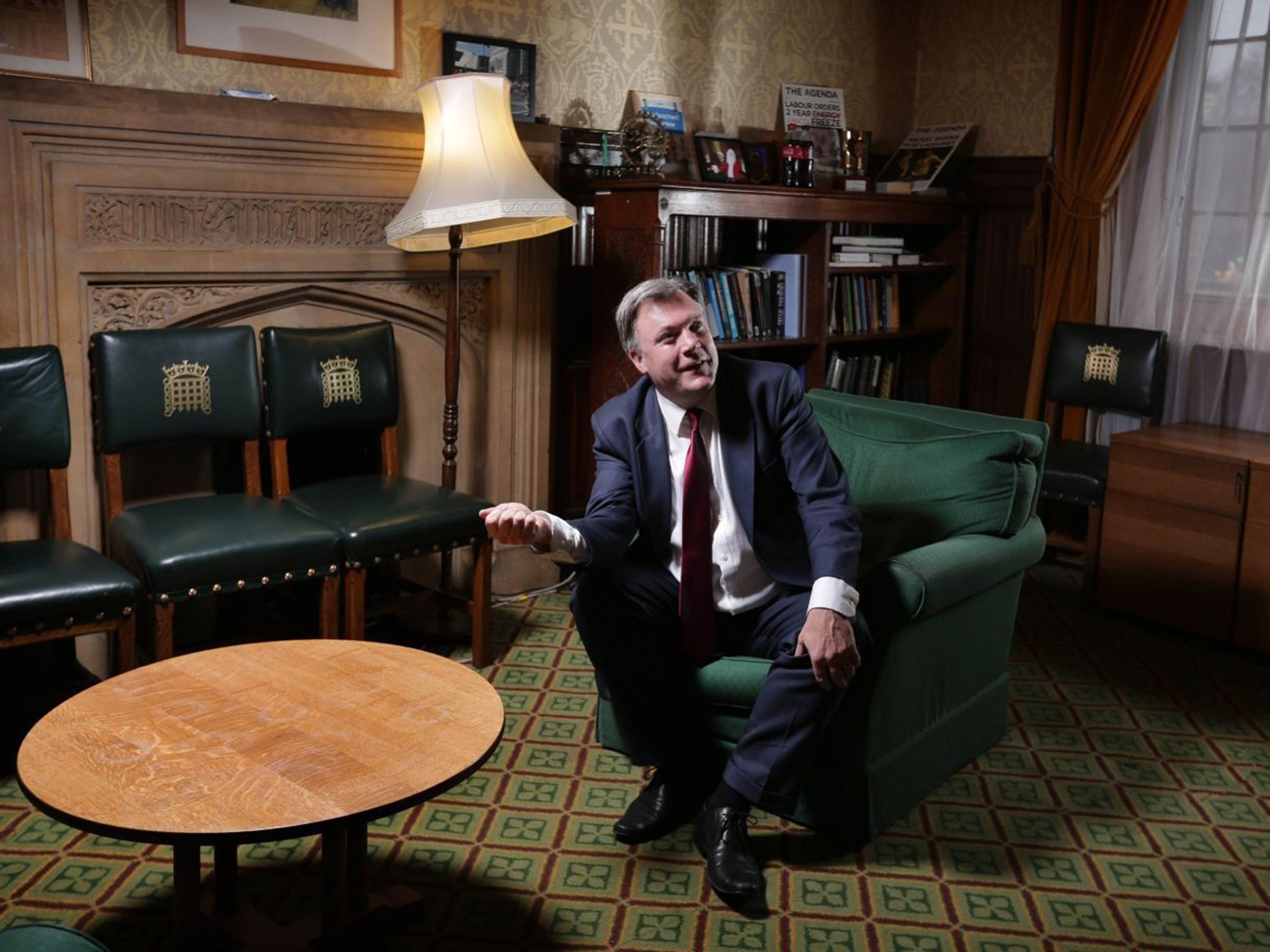Ed Balls interview: 'If I think about the deficit when I'm playing the piano, it all goes wrong'
Ed Balls says Labour will square the circle of cutting the deficit and outspending the Tories – and he believes voters sense the party’s integrity

Behind closed Labour doors, a debate rages. Should it be a “bleeding stumps” party which promises deep spending cuts or a “bleeding hearts” one which shouts from the rooftops that it would spend up to £40bn more than the Conservatives on public services?
In an hour-long interview, Ed Balls, who would hold the purse strings if Labour wins power next May, argues that his party can do both. He contrasts its “tough-but-balanced, centre-ground” approach to the “extreme” cuts proposed by the Tories.
But when pressed, the shadow Chancellor comes down on the “cuts” side of the fence. He says: “The question about us is: will we show that where there are difficult decisions, we will make them? Will the sums add up? Will we throw money at problems or cut spending? Will we face up to people and say ‘I am really sorry, we will not spend money we have not got’?”
Mr Balls admits that voters need reassurance. “People who desperately want to vote Labour on the NHS, schools or are worried about wages and jobs, they need to know that we will make the sums add up, that the judgements we make will show the steel and character we need to do the job.”
He points to Labour’s “zero-based” review of every Whitehall department. He does not deny that just £1.5bn of cuts have been identified so far, but promises more in the new year.
Although Labour will vote for George Osborne’s “charter for budget responsibility”, Mr Balls insists that does not mean the party is committed to the Chancellor’s £30bn of cuts to day-to-day spending on services by 2017-18.
“We are not going to sign up to an arbitrary timetable,” he says. “The deficit needs to come down every year in the next parliament.”
He argues that the Tory plan is “deeply defeatist and accepts that George Osborne’s failure continues in the next parliament”. Labour’s cuts would affect all budgets except the NHS, overseas aid and, he hints, education, but the party would make “different and fairer choices on taxation” and reform the economy, raising wages and government tax revenues and securing growth.
The Institute for Fiscal Studies said that Labour’s policy could allow it to spend £40bn more than the Tories. Mr Balls is coy about a figure, saying such projections assume Labour would not clear the annual deficit until 2020. It would do so “as soon as possible”, and by 2020 at the latest.
Rather cheekily, Mr Balls argues that Labour’s approach is “tougher” than Mr Osborne’s because the Chancellor’s charter includes a “rolling” three-year target to eliminate the deficit, so it might never be achieved.
He warns repeatedly that the Tories’ cuts would take Britain back to the 1930s, seizing on the Office for Budget Responsibility’s statement about the share of national income taken by the state. He is confident that this parallel has helped turn the tide in Labour’s favour because the public will not support such deep cuts. “We are winning the argument,” he claims.
But Labour would have to become the first party since the Second World War to win power when trailing both on economic competence and having the most popular leader. Mr Balls acknowledges: “We have some understandable, natural and particular challenges. It is a big part of my job with Ed [Miliband] to face up to them.”
He believes voters sense Labour’s “core integrity” is stronger than the Tories’, claiming they have ditched “compassionate Conservatism” and “have not changed”. He adds: “There is a sense of unease in the country. People want change but we were only in government quite recently. Labour must show it has learned from mistakes such as on immigration and bank regulation.
“We are going into an election that is going to be close. It is going to be a tough fight for us,” he admits. “It is going to be the most important general election in our country for very many years, a more decisive one than any in my political life.”
Mr Balls has set himself another target – for his piano playing. Even if he becomes Chancellor next May, he is determined to pass the top Grade 8 exam by the end of his 50th year in three years’ time. He has just achieved Grade 4. “I am under a bit of pressure on it, to be honest,” he smiles. He squeezes in a joke at Mr Osborne’s expense, saying his musical goal may also have to be a “rolling target”.
When Mr Balls ran marathons, he couldn’t stop thinking about politics. The piano offers him an escape because it demands total concentration. “If I am sitting there and I start thinking about the deficit, it all goes wrong,” he smiles. “On the piano, you have to be totally focused.” Come next May, Mr Balls might have to be totally focused on the deficit.
Subscribe to Independent Premium to bookmark this article
Want to bookmark your favourite articles and stories to read or reference later? Start your Independent Premium subscription today.

Join our commenting forum
Join thought-provoking conversations, follow other Independent readers and see their replies